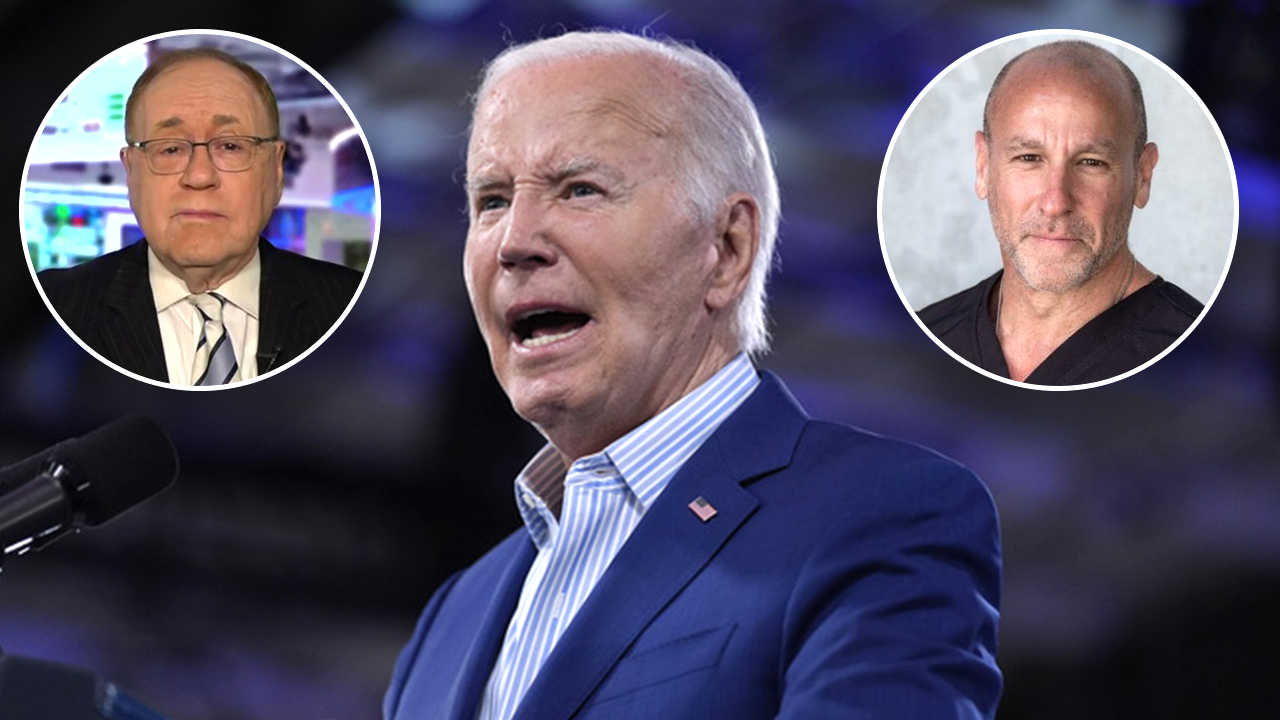The ruling means states and other parties suing Purdue will restart negotiations, the latest chapter in the national reckoning over the role of drugmakers and other companies in igniting the epidemic of addiction and overdoses. The ruling could also affect major settlements in other cases approved through bankruptcy courts.
In a 5-4 decision that scrambled ideological lines on the Supreme Court, the majority found the plan was invalid because all the affected parties had not been consulted on the deal.
Justice Neil M. Gorsuch, writing for the majority, concluded that the bankruptcy code does not allow parties who did not file for bankruptcy to be shielded from lawsuits by claimants who did not consent.
“No one has directed us to a statute or case suggesting American courts in the past enjoyed the power in bankruptcy to discharge [such] claims … all without the consent of those affected,” wrote Gorsuch, who was joined by Justices Samuel A. Alito Jr., Clarence Thomas, Ketanji Brown Jackson and Amy Coney Barrett.
Gorsuch said Congress possesses the ability to overhaul the bankruptcy code in a way that would explicitly address opioid-related bankruptcies.
Purdue declared bankruptcy in 2019, as it faced thousands of lawsuits and allegations that the company helped fuel the crisis by the marketing of its blockbuster painkiller OxyContin.
The Office of the U.S. Trustee, a branch of the Justice Department, challenged the bankruptcy deal, saying it violated federal law. The legal issue before the Supreme Court in Harrington v. Purdue Pharma was whether, according to federal bankruptcy laws, the Sacklers could be shielded from future opioid-related litigation filed by those who do not consent to give up their rights to sue.
A panel of the U.S. Court of Appeals for the 2nd Circuit in New York said yes, citing two provisions of the bankruptcy code. One says a bankruptcy court “may issue any order, process, or judgment that is necessary or appropriate to carry out the provisions of” the law. The other says a plan may “include any other appropriate provision not inconsistent with the applicable provisions of” the code.
The appeals court interpreted that to mean a bankruptcy court could approve provisions not expressly forbidden by the code. In August, the Supreme Court put the bankruptcy deal on hold to consider the 2nd Circuit’s ruling.
Justice Brett M. Kavanaugh, writing for the minority that included conservative justice John G. Roberts Jr. and liberals Sonia Sotomayor and Elena Kagan, said Thursday’s decision “is wrong on the law and devastating for more than 100,000 opioid victims and their families.” He wrote the decision restricts “the long-established authority of bankruptcy courts to fashion fair and equitable relief for mass-tort victims.”
Purdue Pharma, in a statement, called the decision “heart crushing” because so many creditors supported the deal. “The decision does nothing to deter us from the twin goals of using settlement dollars for opioid abatement and turning the company into an engine for good,” the company said in a statement.
Connecticut Attorney General William Tong, whose office first sued in 2019 and eventually agreed to the deal, praised the high court’s decision. “Billionaire wrongdoers should not be allowed to shield blood money in bankruptcy court,” he said in a statement.
He said that in new negotiations, the office will insist settlement funds be used “to save lives through opioid treatment and prevention, including direct relief to victims and their families.”
The high-stakes legal fight has divided relatives of overdose victims and those whose lives were shattered by opioid addiction. Some insisted the bankruptcy deal was allowing the Sackler family to get off easy, while others said immunity was the only way to get desperately needed settlement money to communities and victims themselves. Individual victims had been slated to get a total of up to $750 million, or between $3,500 to $48,000 per claim.
“As a result of the senseless three-year crusade by the government against the plan, thousands of people died of overdoses, and today’s decision will lead to more needless overdose deaths,” said Edward E. Neiger, a New York attorney representing a committee that included more than 60,000 victims who approved of the deal.
Ryan Hampton, a prominent victims advocate who helped craft the previous plan, said Thursday that state attorneys general need to ensure “the victims cannot be cut out of the deal when this is renegotiated.”
Ed Bisch, who lost his son to an overdose and opposed the deal, expressed relief at the opinion — calling Thursday a “good day for justice.” He runs a group called Relatives Against Purdue Pharma.
Hampton and Bisch both called on the Justice Department to prosecute members of the Sackler family, who had sought civil immunity from opioid lawsuits as part of the bankruptcy deal. Sackler family members have long denied personal responsibility.
Relatives of late brothers Mortimer Sackler and Raymond Sackler did not say whether the family would still contribute billions of dollars but said they remain “hopeful about reaching a resolution” that will combat the crisis. In a statement, the family said “the alternative is costly and chaotic legal proceedings in courtrooms across the country” and they remain confident about prevailing in future lawsuits “given the profound misrepresentations about our families and the opioid crisis.”
Since 2000, more than 300,000 people have died in the United States of prescription opioid overdoses, according to statistics from the Centers for Disease Control and Prevention. The crisis recently has evolved into an even deadlier phase, marked by the use of synthetic opioids such as fentanyl, which have fueled an overdose death toll of more than 100,000 each year.
States, local governments, Native American tribes, hospitals and victims have sued opioid manufacturers, drug distribution companies, retail pharmacy chains and others. The complex litigation — largely consolidated in a federal case in Ohio — has resulted in more than $50 billion in settlements with states aimed at helping them ease the crisis.
The Justice Department separately resolved a civil and criminal probe into Purdue, which pleaded guilty in 2020 to three felonies; the company will pay $225 million to the government if the bankruptcy settlement goes through. The Sackler family also agreed to pay $225 million in civil damages to the Justice Department.
OxyContin earned billions of dollars for Purdue and the Sacklers, who have been widely scrutinized through news coverage, books, documentaries and a fictionalized Netflix series.
The complicated negotiations in the company’s bankruptcy case resulted in a settlement that highlighted the tricky challenge of accountability and the need to compensate victims and fund state efforts to fund rehabilitation programs, addiction treatment, anti-drug campaigns and medications used to reverse overdoses.
In September 2021, a New York U.S. bankruptcy judge approved a deal that called for the Sackler family to contribute more than $4 billion to the settlement. The Justice Department and eight states objected. Critics said the Sackler family received more than $10 billion in payouts from the company; the family stressed nearly half went toward taxes.
The holdout states eventually agreed to a deal that called for the family to contribute up to $6 billion. Members of the Sackler family would also give up ownership of the company, which would become a public trust that would use its profits to address the opioid crisis. It would release a trove of million documents related to the marketing of OxyContin.
In 2021, a U.S. District Court judge overturned the deal initially approved in bankruptcy court, ruling that the family members cannot be exempted from future claims. The 2nd Circuit reversed and approved the bankruptcy plan, saying that shielding the Sacklers from lawsuits was needed to “ensure the fair distribution” of settlement money.
The Justice Department asked the Supreme Court to intervene. Solicitor General Elizabeth B. Prelogar told the court that under bankruptcy law, the rights of alleged victims to sue cannot be taken away without their consent. Purdue said the Justice Department’s position would allow a single person to veto the plan despite overwhelming support from 50 states and thousands of victims and local governments.
While Thursday’s Supreme Court decision signals renewed negotiations for the company in bankruptcy court, other lawsuits may now proceed against the Sacklers.
Unless settlements are hashed out this summer, those lawsuits consolidated in the Ohio multidistrict litigation will proceed in September, said Jayne Conroy, a lead attorney who serves on a committee representing opioid plaintiffs. She noted that the bankruptcy process has cost Purdue more than $1 billion in legal and administrative fees, money that could have gone toward communities reeling from opioid addiction.
“We’re going to continue to push to find the Sacklers responsible and liable and get justice for the victims,” Conroy said.
The upending of the Purdue deal highlights the need for local governments and states to thoughtfully spend billions of dollars that other companies implicated in the opioid crisis have paid out, said Sara Whaley, a health policy expert at Johns Hopkins Bloomberg School of Public Health.
“Another $6 billion would have been great — but $50 billion still need to be spent,” Whaley said.














































